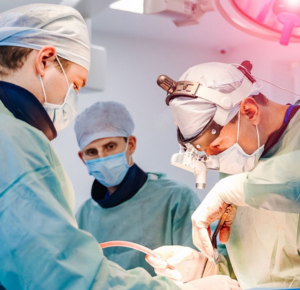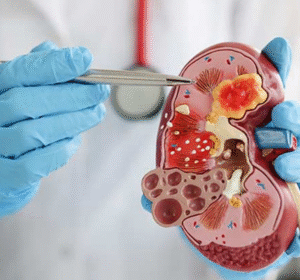Beards have become an iconic symbol of masculinity and style over the years. Whether you’re aiming for a full, bushy look or just want to fill in patchy areas, a Beard Transplant could be the perfect solution for you. With advancements in cosmetic surgery, achieving that dream beard is easier and more natural-looking than ever before. This comprehensive guide will walk you through everything you need to know about the procedure, its benefits, and what to expect.
What is a Beard Transplant?
A beard transplant is a cosmetic procedure where hair follicles are taken from one part of your body (usually the back of the head) and transplanted onto your face to enhance facial hair growth. The aim is to give you a fuller, thicker beard or to help you grow facial hair in areas where it doesn’t naturally grow.
Why Get a Beard Transplant?
There are various reasons why men choose to undergo a beard transplant. Some of the most common include:
- Patchy Beard Growth: Many men struggle with inconsistent facial hair growth, leaving them with a patchy appearance. A transplant can fill in those gaps.
- Scarring: Previous injuries or surgeries may leave scars that prevent hair from growing. A beard transplant can cover those scars effectively.
- Cosmetic Preference: Some men simply prefer a fuller beard for aesthetic reasons or to follow current fashion trends.
Who is a Good Candidate?
A beard transplant is suitable for most men, but there are some criteria that make you an ideal candidate:
- You should have healthy hair growth at the donor site, which is typically the back of the scalp.
- You must be in good overall health, as this is a minor surgical procedure.
- You should have realistic expectations about the results.
Types of Beard Transplants
There are two main techniques used in beard transplants: Follicular Unit Extraction (FUE) and Follicular Unit Transplantation (FUT).
Follicular Unit Extraction (FUE)
FUE is a minimally invasive technique where individual hair follicles are harvested from the donor area and then transplanted to the beard area. This method leaves minimal scarring and has a shorter recovery time.
Follicular Unit Transplantation (FUT)
FUT involves removing a strip of skin with hair follicles from the donor area, dissecting the follicles, and then implanting them in the beard area. While this technique may result in a longer recovery time and more noticeable scarring, it can often yield more follicles in a single session.
The Procedure: What to Expect
The beard transplant process is relatively straightforward. Here’s what you can expect during and after the procedure:
- Consultation: Before the surgery, you’ll have a consultation with a specialist to discuss your goals, evaluate your facial hair, and determine the donor area.
- Preparation: On the day of the procedure, the donor area (usually the back of your head) will be shaved, and the hair follicles will be harvested.
- Transplantation: The surgeon will carefully implant the hair follicles into the desired beard area, paying close attention to the direction and angle of the hairs to ensure a natural look.
- Recovery: After the procedure, you’ll be given post-operative instructions, including how to care for the new hair grafts. Mild swelling and redness are normal and should subside within a few days.
- Results: Initially, the transplanted hair may fall out, but new growth will begin within a few months. The final result is usually visible within 6 to 12 months.
Recovery and Aftercare
One of the key advantages of modern beard transplants is the relatively short recovery time. Most patients can return to work within a few days, although there might be some swelling and redness for the first week. To ensure the best results, it’s essential to follow aftercare instructions provided by your surgeon, such as:
- Avoiding direct sunlight on the transplant area.
- Refraining from touching or scratching the transplanted hair.
- Skipping strenuous physical activities for at least a week.
- Using prescribed medications to reduce swelling or discomfort.
Potential Risks and Complications
While a beard transplant is generally considered safe, there are some potential risks, as with any surgical procedure. These may include:
- Infection
- Scarring
- Folliculitis (inflammation of the hair follicles)
- Unnatural hair growth if not done by an experienced surgeon
However, choosing a skilled and experienced surgeon can significantly reduce the likelihood of complications.
Cost of a Beard Transplant
The cost of a beard transplant varies depending on the clinic, location, and the number of grafts needed. On average, you can expect to pay anywhere from $3,000 to $7,000 for the procedure. While it may seem expensive, many patients find the long-lasting results to be well worth the investment.
Benefits of a Beard Transplant
A beard transplant offers several benefits that go beyond just aesthetics:
- Permanent Results: Unlike topical treatments or beard growth oils, a transplant provides permanent results.
- Natural Appearance: The transplanted hair will grow naturally, and once fully healed, it will be indistinguishable from the rest of your beard.
- Customizable Beard Shape: You can choose the shape and style of your new beard, giving you complete control over your appearance.
Alternative Options for Beard Growth
If you’re not quite ready for a eyelid surgery blepharoplasty, there are other methods to improve beard growth:
- Minoxidil: This over-the-counter medication is commonly used to promote hair growth and may help improve beard density.
- Beard Growth Oils: Special oils and balms can nourish the skin and hair follicles, encouraging healthier growth.
- Diet and Supplements: A diet rich in vitamins like biotin, vitamin E, and omega-3 fatty acids can help improve overall hair health.
Choosing the Right Surgeon
Selecting the right surgeon is crucial to achieving natural, successful results. Here are a few tips for finding a qualified specialist:
- Look for a board-certified surgeon with experience in facial hair transplants.
- Ask to see before-and-after photos of previous patients.
- Read reviews and testimonials from previous clients.
Conclusion
A beard transplant can be a life-changing procedure for those looking to enhance their facial hair. With modern techniques like FUE and FUT, the results are natural-looking and permanent. Whether you’re aiming to fill in patchy areas or create a fuller beard, this procedure offers a long-lasting solution for men seeking facial hair improvement.






